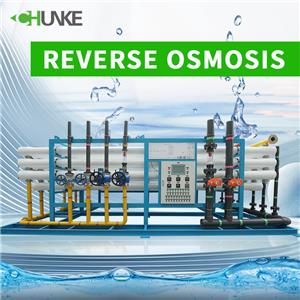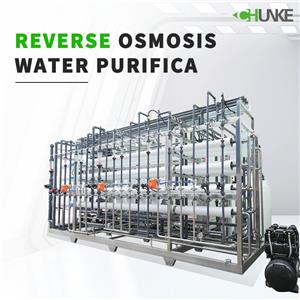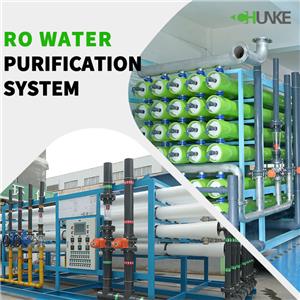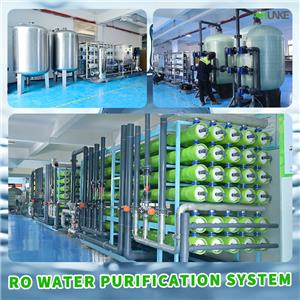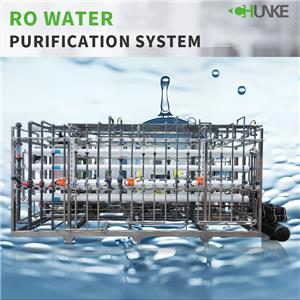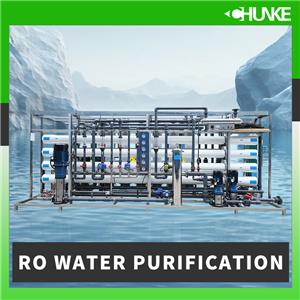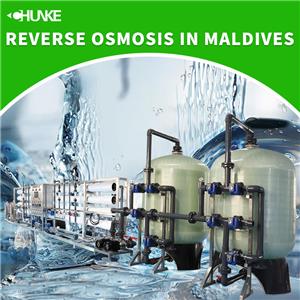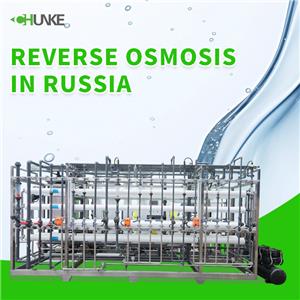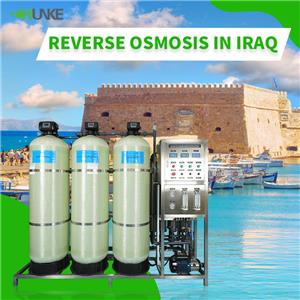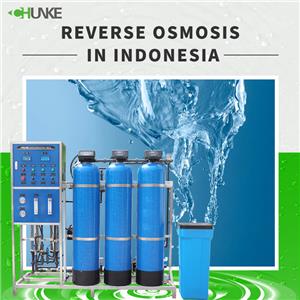-
05-24 2024
Why Shouldn't You Use Reverse Osmosis Water?
Reasons not to use reverse osmosis water: When cooking vegetables, meats and grains, reverse osmosis water can cause up to 60% of the calcium and magnesium in the food to be lost. Other trace elements, such as copper, manganese and cobalt, may be lost at even higher rates, as high as 66%, 70% and 86% respectively. These minerals and trace elements are essential for human health and nutritional balance.
-
05-08 2024
What is the service life of a reverse osmosis water purification system?
The service life of a reverse osmosis water purification system is typically between 10 and 15 years. The life of the system depends on a variety of factors, including water quality, maintenance, and the quality of the system components. Frequent cleaning and replacement of filters and reverse osmosis membranes can help extend the life of your system.
-
05-06 2024
What is the difference between a RO water purification system and conventional filtration?
1. Differences in filtration technology: 2. Differences in filtering effects: 3. Maintenance and usage costs:
-
04-25 2024
Is a home reverse osmosis water purification system worth it?
Household reverse osmosis water purification system is an important means to improve the quality of household drinking water and protect household water equipment. Although there are some disadvantages, such as wastewater discharge and higher initial investment, its advantages such as efficient purification, easy operation, space saving and energy saving make it an ideal choice for many households.
-
04-18 2024
What is RO water purification system?
Reverse osmosis water purification system is an efficient technology for water purification. It separates dissolved solids and impurities in water through a semipermeable membrane to obtain clean drinking water or industrial water.
-
03-13 2024
Is reverse osmosis a good way to purify water?
Reverse osmosis systems are widely used as an effective water purification method that can provide clean, filtered drinking water. In addition to reverse osmosis systems, there are many ways to purify water, including water filters, UV disinfection, activated carbon filtration, and chemical treatments.
-
01-27 2024
Why is the popularity of reverse osmosis water purification systems in Maldives high?
The reasons for the successful popularization of the Maldives reverse osmosis water purification system include the special geographical environment, water resource scarcity, continuous government investment and policy support, international cooperation and technology introduction, extensive education and publicity work, and community participation and feedback mechanisms.
-
01-25 2024
In what fields is Russia's reverse osmosis technology applied?
Russia widely uses reverse osmosis technology, covering areas such as urban water supply, industrial production, agricultural irrigation, and healthcare. Russia focuses on environmental protection in the application of reverse osmosis technology, providing experience for efficient management of water resources.
-
01-25 2024
How does Iraq solve its water resource problem?
Iraq is actively responding to the water crisis by introducing reverse osmosis water purification systems. Reverse osmosis technology is believed to efficiently remove salt and microorganisms, improve urban water supply, agricultural irrigation, and local water source management.
-
01-23 2024
Can Indonesian tap water be consumed directly?
With urbanization in Indonesia, tap water has become the main source of drinking water. The survey shows that there are microorganisms, heavy metals, and organic substances in the water quality, and direct drinking poses health risks. The reverse osmosis water purification system can solve problems, remove microorganisms, heavy metals, and organic matter, and provide a safe water source.





